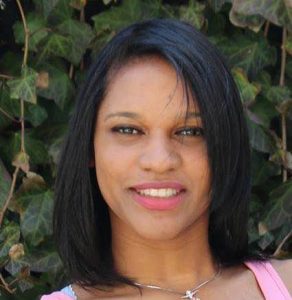CPL Director opened our meetup on March 1, 2024 at the Graduate Center framing today’s session on financial literacy. She noted that some of the topics, like financial literacy, in these meetups are topics that are pertinent but are not typically talked about in college. She kicked off the meetup with an entry ticket, a prompt that everyone in the room could answer: “What’s one way you used money in the last year that you feel particularly good about? Why?” Participants discussed the prompt amongst themselves for a few minutes and then passed around the mic to share with the larger group.
An entry ticket like this one is an inventory method that solicits participation from everyone in a room, not just the hand-raising few. It creates an equitable structure for engagement, one that teaches every participant that their voice and their contribution is valued, expected, and essential to the community present.
Participants shared their pride in (and strategies for) saving money by taking advantage of local discounts; apps like Too Good to Go; opening their first credit cards and getting cash back then squirreling away that cash in a high-yield savings account; and pet insurance. Some spoke about spending that felt gratifying: purchasing things for younger family members to shower them with love, childcare where your kid feels happy, and moving into a new apartment to have more independence.
Many resources were shared in the agenda, Zoom chat, and in conversation, such as sharing a Netflix account among family members; or taking advantage of Facebook groups like Buy Nothing in your neighborhood.
Further Readings & Resources:
- 5 budgeting tips for college students that can help set you up for financial success
- Where the Weaknesses Are in Student Financial Wellness
- Should Schools Teach Financial Literacy ?
- Personal Finance Basics in 8 Minutes with Ramit Sethi
- For reduced subway fairies depending on your income: https://www.nyc.gov/site/fairfares/index.page
- Friendly excel platform to track personal expenses: https://www.notionry.com/faq/how-to-embed-excel-spreadsheets-into-notion
Ways to get discounted Broadway tickets:

The special speaker for the day was Celi Lebron, who is the Futures Initiative’s Budget Manager. She graduated from City College of New York with a B.S. in Computer Engineering and a minor in creative writing. Lebron is currently working toward an MBA degree at Baruch College. She is integral to the Futures Initiative’s operations and does everything from working with the Accounts Payable and Procurement Departments, to processing reimbursements and travel authorizations, to providing monthly financial reports for the program. In addition to her role with the Futures Initiative, she works as a Brand Activation Manager for Anheuser-Busch InBev. Born and raised in the Dominican Republic, Celi is bilingual and began her CUNY trajectory at Hostos Community College, where she developed a strong community of peers while learning to navigate the U.S. higher education system.
Celi started her talk by sharing the CEO strategy, which involves cutting down regular expenses (e.g., rent, groceries, and transportation); earning more (salary negotiation, obtaining new skills, second easy job, and trading—not just stocks and bonds but also your time…like paying someone to clean your house while you do a second job you love); and optimizing spending (monthly subscriptions, watching card interests). Celi shared how she earned increases in pay: showing what she had accomplished, what she makes compared to market rate, and advocating for an increase in pay. She said, “Whatever you do in your career, you need to always find ways to upscale that skill.” Self-improvement helps you stay current and cutting edge, and reduces the risk of you being replaced by someone new. Celi reminded everyone to pay off their credit cards by end of day the day the payment is due to avoid fees, and talked about making automatic payments to pay their cards in full each month.
We broke out into a larger group discussion and shared bad ways to spend money, finding that we all had a lot in common! Impulse spending on technology, food, books, concert tickets, and more things we love and can’t resist. This launched us into a conversation about how to build credit (e.g., buying furniture that you know you can pay off, but set up installments anyway to build credit).
Some of our bad relationships to money are due to our social and emotional relationships to money, which we often inherit from our families. So if our families have negative relationships with money, we’re more likely to fear it than to invest time learning how to manage it. Knowing this can help us start a new relationship to managing money.
Celi showed us how to use a simple Personal Budget spreadsheet (click below to download your own copy–some suggested fields are filled in to give you an idea of what it should look like). Celi reminded us at the end of the session that personal finances are all about control. She buys all her workout clothes on Black Friday. She automated her savings for vacations and travel. When you start writing down your expenses, you start asking, “Do I really need this?” It’s about knowing what you need and want, and how to get them. Thinking about where your money goes is important, which businesses you buy from, and who you give your money to as well.


